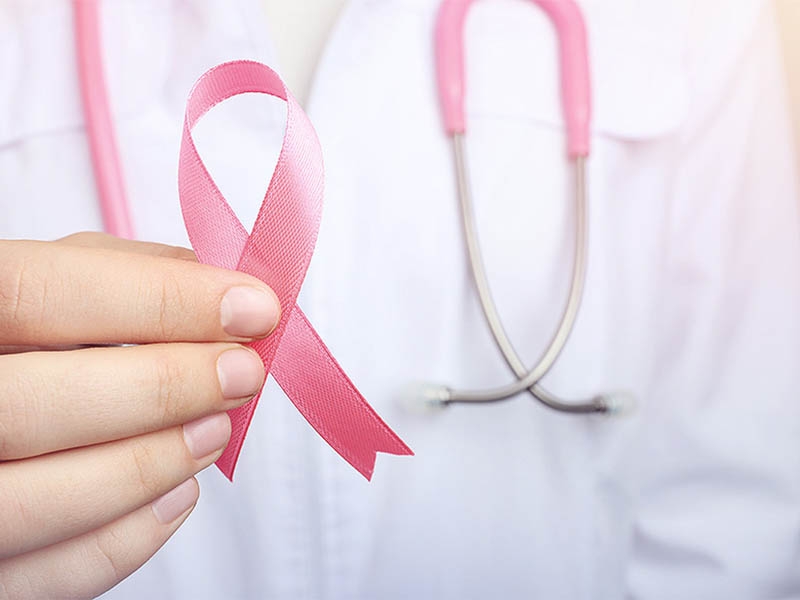
Mastologist
Watch our video about Mastologist
A Mastologist is a medical specialist who focuses on the diagnosis, treatment, and prevention of conditions related to the breasts. Mastologists are experts in managing a wide range of breast health concerns, from benign lumps and infections to breast cancer. They are trained to handle both routine breast examinations and complex cases requiring surgery or advanced treatments.
Mastologists often collaborate with other specialists, such as oncologists and radiologists, to provide comprehensive care for their patients. Their primary goal is to ensure breast health through early detection, timely interventions, and personalized treatment plans tailored to each patient's needs.
Specialties and Procedures
Mastologists offer expertise in several key areas, including:
Breast Cancer Screening and Treatment: Diagnosing and managing breast cancer through mammograms, biopsies, surgery, and oncology care.
Benign Breast Diseases: Managing non-cancerous conditions like fibrocystic breast disease, mastitis, and benign tumors.
Breast Reconstruction: Working with plastic surgeons to restore the breast’s appearance after surgery, particularly following mastectomy for breast cancer.
Preventive Care: Guiding patients on reducing the risk of breast cancer and promoting breast health through regular exams and lifestyle changes.
When Should You See a Mastologist?
You should consider seeing a mastologist if you experience any breast-related symptoms or changes. Common reasons for consulting this specialist include:
- Breast lumps or thickening: Whether painless or painful, any lump should be evaluated by a mastologist to rule out serious conditions.
- Nipple discharge or changes: Unusual discharge, particularly if bloody, or changes in nipple shape or appearance may indicate an underlying issue.
- Breast pain: Persistent pain, especially if localized to one area, could signal an infection, cyst, or other concerns requiring professional evaluation.
- Family history of breast cancer: If you have a family history of breast cancer, a mastologist can offer guidance on screening and prevention.
Regular visits to a mastologist are also recommended for women over 40 for routine mammograms, as early detection of breast issues can significantly improve treatment outcomes.
Treatments Provided by Mastologists
Breast Cancer Treatment
Breast cancer treatment is one of the most critical areas of focus for mastologists. When breast cancer is diagnosed, mastologists develop a personalized treatment plan that may involve surgery, radiation, chemotherapy, or hormone therapy, depending on the stage and type of cancer.
Surgical treatment is often a key component of breast cancer care. Mastologists may perform a lumpectomy, which removes the cancerous tumor while preserving most of the breast, or a mastectomy, which involves removing the entire breast in more advanced cases. In some cases, lymph nodes are also removed to prevent the spread of cancer. The choice of surgery depends on factors such as the size of the tumor, the patient's medical history, and personal preferences.
After surgery, mastologists continue to play a central role in follow-up care, working alongside oncologists to ensure the cancer is properly treated and does not return. Radiation therapy or chemotherapy may be recommended based on the specific case, and hormone therapies like Tamoxifen or Aromatase inhibitors are often prescribed to prevent hormone-sensitive cancers from recurring.
Benign Breast Disease Treatment
In addition to treating cancer, mastologists also manage benign breast diseases, which are non-cancerous conditions that can still cause discomfort or concern. Conditions like fibrocystic breast changes, cysts, and fibroadenomas are common and can result in lumps, tenderness, and breast pain.
Treatment for these conditions may involve aspiration of cysts, which involves using a fine needle to remove fluid from a benign lump, providing relief from discomfort. In cases of fibroadenomas—benign tumors often found in younger women—mastologists may recommend surgical removal if the lump is large or causing pain, though many fibroadenomas are simply monitored over time.
For infections like mastitis, which is common in breastfeeding women, mastologists typically prescribe antibiotics to clear the infection. In more severe cases, a small incision may be needed to drain an abscess. Regular monitoring and follow-up with a mastologist ensure that benign conditions do not worsen or develop into more serious problems.
Preventive Measures for Breast Health
There are several steps women can take to maintain good breast health and reduce the risk of breast disease:
- Regular self-exams: Performing monthly breast self-exams can help detect any changes early. Look for lumps, changes in size, or unusual discharge.
- Routine mammograms: Women over 40 should schedule annual mammograms to screen for breast cancer. Those with a family history of breast cancer may need to start screening earlier.
- Healthy lifestyle: Maintaining a balanced diet, exercising regularly, limiting alcohol consumption, and avoiding smoking can all reduce the risk of developing breast cancer.
Frequently Asked Questions (FAQ)
1. How often should I get a Mammogram?
Women should begin annual mammograms at age 40, or earlier if they have a family history of breast cancer. Mastologists can recommend a personalized screening schedule based on your risk factors.
2. Are all breast lumps cancerous?
No, most breast lumps are benign, such as cysts or fibroadenomas. However, it’s essential to have any lump evaluated by a mastologist to ensure proper diagnosis and peace of mind.
3. What does breast cancer surgery involve?
Depending on the case, surgery may involve removing only the tumor (lumpectomy) or the entire breast (mastectomy). Mastologists work closely with patients to choose the best surgical option based on the stage of cancer and personal preferences.
Mastology Services at Clinic Consultation
At Clinic Consultation, our experienced mastologists provide comprehensive care for all breast health concerns, from routine exams and benign conditions to breast cancer diagnosis and treatment. Our specialists use the latest technology and techniques to ensure early detection and successful treatment, offering personalized care for each patient’s needs.
Book an appointment today with one of our expert mastologists and take proactive steps toward maintaining your breast health at Clinic Consultation.
Click the button below to schedule your appointment online.